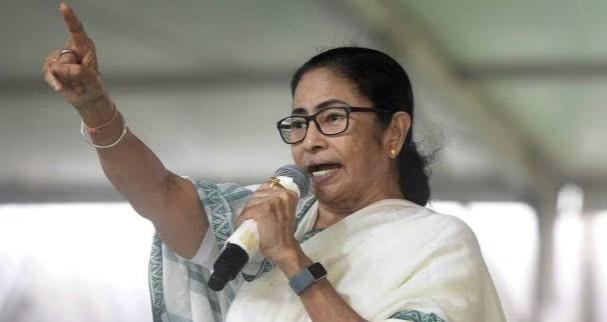
130th Constitutional Amendment Bill will end democracy: Mamata
The recent introduction of the Constitution (130th Amendment) Bill, 2025 by the Centre has sent shockwaves across the nation, with many questioning the implications of the proposed legislation on India’s democratic fabric. West Bengal Chief Minister Mamata Banerjee has been vocal in her criticism of the bill, stating that it will “end” India’s democratic era forever.
According to the bill, the Prime Minister, Chief Ministers, and ministers can be arrested and detained for at least 30 days without being granted bail. This move has been met with widespread opposition from various quarters, with many arguing that it is a draconian measure that undermines the fundamental rights of citizens.
Banerjee, who has been a vocal critic of the Centre’s policies, has called the bill a “death knell for democracy and federalism in India”. She has accused the Centre of trying to suppress dissent and opposition voices through such measures.
“This draconian step comes as a death knell for democracy and federalism in India,” she said in a statement. “The Centre is trying to silence the voices of opposition and suppress dissent through such measures. This is a clear violation of the principles of democracy and federalism.”
Banerjee’s criticism of the bill is not unfounded. The proposed legislation has been widely seen as a tool to silence opposition voices and stifle dissent. The Centre’s move to introduce the bill has been seen by many as an attempt to consolidate power and undermine the checks and balances that are essential to a functioning democracy.
The bill has also been criticized for its lack of transparency and due process. Under the proposed legislation, individuals can be arrested and detained for up to 30 days without being granted bail. This means that individuals can be held in custody for extended periods without being charged or tried.
This lack of transparency and due process has raised concerns about the potential for abuse of power. It is feared that the Centre could use this legislation to target political opponents, activists, and journalists who may be critical of its policies.
The introduction of the 130th Amendment Bill, 2025 has also raised concerns about the erosion of federalism in India. The bill proposes to give the Centre more powers to appoint governors and administrators in states, which has been seen as a move to undermine the autonomy of states.
Banerjee has accused the Centre of trying to impose its will on states and undermine the principles of federalism. She has argued that the Centre’s move to introduce the bill is a clear violation of the principles of cooperative federalism, which is essential to the functioning of a federal system.
The Centre’s introduction of the 130th Amendment Bill, 2025 has sparked widespread protests and opposition across the nation. Various political parties, including the Congress and the Left parties, have come out against the bill, while civil society organizations and human rights groups have also expressed their opposition to the legislation.
The proposed legislation has also been criticized by many experts, who have argued that it is a regressive step that undermines the principles of democracy and human rights. The bill has been seen as a move to consolidate power and undermine the checks and balances that are essential to a functioning democracy.
In conclusion, the introduction of the 130th Amendment Bill, 2025 by the Centre has been met with widespread criticism and opposition. The proposed legislation has been seen as a tool to silence opposition voices, stifle dissent, and undermine the principles of democracy and federalism in India. West Bengal Chief Minister Mamata Banerjee has been vocal in her criticism of the bill, stating that it will “end” India’s democratic era forever.
It is essential that the Centre listens to the voices of opposition and reconsider its decision to introduce the bill. The proposed legislation has the potential to undermine the very fabric of Indian democracy and it is essential that we take steps to protect our democratic institutions and values.
Source: https://repository.inshorts.com/articles/en/PTI/d5fe0ac1-b6ed-4737-a7b9-b954e0358e9a






